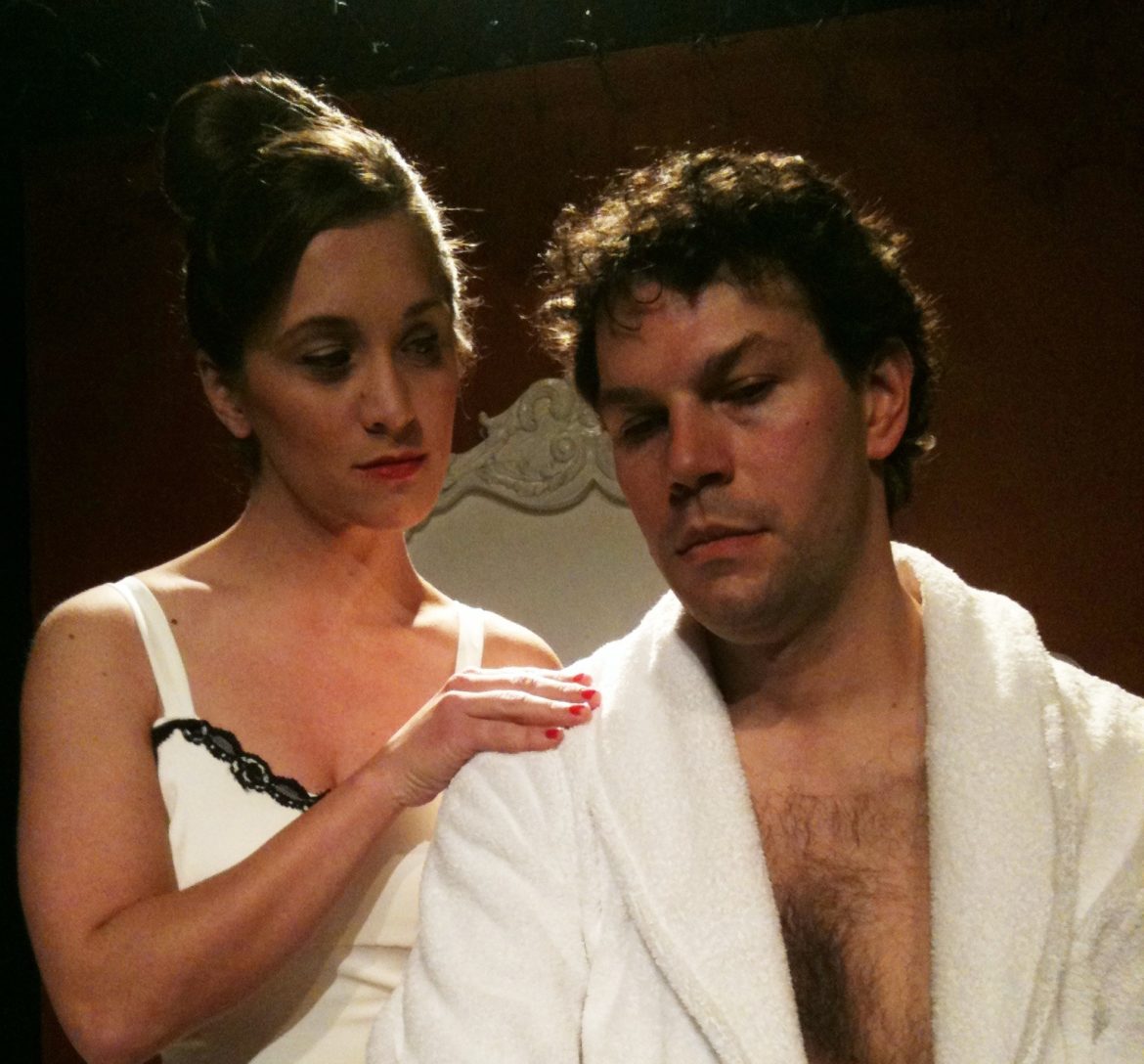When Brick, Maggie the Cat, Big Daddy and Big Mama come to town, it’s always a cause for celebration. Theatregoers know they’re in for an evening of epic family squabbling and steamy sexuality delivered in Tennessee Williams’ singular combination of Southern-inflected poetry and vulgarity. It’s therefore fortunate that the Chapel Street Players are giving us a look at Williams’ 1955 Pulitzer Prize-winning play Cat on a Hot Tin Roof—it may or may not be Williams’ best work, but in some ways it’s the most “Williams-in-a-nutshell” of his major plays. It gives us some of Williams’ most iconic characters, his most recognizable and accessible themes, and some of his most colorfully quotable dialogue. The Chapel Street Players’ cast, under Jamie Cunningham’s clean and sharp direction, takes to Williams’ words like cats to catnip, and while the notorious “steamy” element of the play might be a bit subdued, the story is presented with unerring strength, clarity, and intelligence.

Brick (Jim Burns) and Maggie (Francesca Vavala) in a scene from Chapel Street Players' CAT ON A HOT TIN ROOF, playing in Newark DE. (Photo credit: Andrew John Mitchell)
We meet Maggie and Brick first, and in a virtuoso aria of desperate cajoling and seduction, Maggie gives husband Brick (and us) the expositional lowdown—patriarch Big Daddy is dying, and there’s a strong possibility he might leave his fortune (some $10 million) and his plantation (“twenty-eight thousand acres of the richest land this side of the Valley Nile,” as Big Daddy notes in one of Williams’ many repetitions) to Brick’s brother Gooper , his wife Mae, and their brood of “no-necked monsters”—five kids and counting. Brick and Maggie are childless, a situation not likely to be remedied as they are no longer sleeping together. Brick is an admitted alcoholic, drinking until he hears the “click” in his head that allows him to be peaceful. What drives Brick to drink, and away from his wife, stems from his deep friendship with the late, beloved Skipper, his college football teammate. By the time Williams ushers in Gooper, Mae, Big Daddy and Big Mama (and in a hilarious bit, all five no-necked monsters), the audience is waist-deep in greed, scheming, and, in Brick’s words, “mendacity.” In the midst of the entertainingly overheated melodrama, Williams also gives us a look at homophobia and tolerance that one wishes could be considered dated now in 2011, but sadly isn’t.
“It’s hard to talk,” Big Daddy notes, but the line is somewhat ironic—everyone in this play talks a blue streak as the characters are imbued with Williams’ love of storytelling and ornate description. What it’s hard to do is actually communicate, and the play is at its most surprising and satisfying when the lines of communication finally connect. The play requires a cast that combines a clarity of purpose with a love of language, and the Chapel Hill Players deliver in spades. Francesca Vavala, as Maggie, makes her purpose extremely clear as she embodies Williams’ title image with great vivacity and resolve. Jim Burns makes Brick’s pain a living presence onstage—his silences are as eloquent as the other characters’ baroque elocutions. Judith A. David is a simultaneously funny, obnoxious, and pathetic presence as Big Mama, who is chiefly defined by her simple and lifelong love of her husband. As Big Daddy, Raymond Harrington gives us all the colors and contradictions of a plantation King Lear, full of casual cruelty, carnal appetite, and outrageous humor. Andrew Mitchell and Michelle Cullen, as the ever-scheming Gooper and Mae, both reveal the resentment and hurt behind the mendacity with two worthy and expert performances. And the youngsters, Stephen Ashby, Carleigh and Michaela Scott, and Rowen and Raelyn Harrington, do right by the “no-necked monsters.”
Williams, as was his wont, continued to reshape and revise this play into the 1970s, and it’s generally assumed that the play’s first director, Elia Kazan, nudged Williams toward a more “crowd-pleasing” ending back in 1955. Whether or not Williams himself ever found complete satisfaction with this play, however, it’s likely that you as an audience will be very satisfied with your stay at Big Daddy’s place.
CAT ON A HOT TIN ROOF
By Tennessee Williams
Directed by Jamie Cunningham
April 22-May 7, 2011
Chapel Street Players
27 N. Chapel Street
Newark, DE 19711
302-368-2248
www.chapelstreetplayers.org


